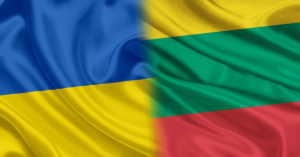
Ukraine and Lithuania intend to resume passenger rail transportation on the Kyiv-Warsaw-Vilnius route, move veterinary and phytosanitary inspections of transit cargo from Ukrainian-Polish border crossings to the port of Klaipeda, and start Ukrainian airlines flying from the country’s airports, Deputy Minister of Community, Territorial and Infrastructure Development Oleksandra Azarkhina wrote on Facebook.
According to her, these issues were discussed at a meeting of the Intergovernmental Ukrainian-Lithuanian Commission on Trade, Economic, Scientific and Technical Cooperation chaired by Deputy Prime Minister for the Reconstruction of Ukraine and Minister of Community Development, Territories and Infrastructure Oleksandr Kubrakov and Minister of Economy and Innovation of the Republic of Lithuania Aushrine Armonaitė.
“Regarding cooperation in the transport sector, we discussed the main directions of restoring and expanding transport links between Ukraine and Lithuania. Namely: the possibility of resuming passenger transportation by rail and further development of the Kyiv-Warsaw-Vilnius route; bilateral cooperation with the involvement of EU institutions to include Yahodyn-Dorogousk in the Trans-European Transport Network; transfer of veterinary and phytosanitary inspections of transit cargo from Ukrainian-Polish border crossings to the port of Klaipeda; development of new routes for the transportation of goods through Poland, which will increase cargo turnover and expand the range of railroad services.
It is noted that, according to the Lithuanian side, the facilitation of procedural requirements at the Ukrainian-Polish border will allow transporting up to 500 thousand tons of Ukrainian agricultural products per year to the port of Klaipeda. Lithuania also plans to install bogie change terminals for railroad tracks, which will also help increase cargo turnover between the two countries.
In addition to the development of railway communication, the Lithuanian side suggested that Ukrainian airlines consider starting operations in Lithuania and participating in national tenders for strategic destinations.
“We have agreed to deepen cooperation in the aviation sector and hope to resume air travel between Lithuania and Ukraine in the near future,” Azarkhina wrote.
Earlier, Lithuania confirmed the need for the EU to subsidize the transportation of Ukrainian grain through Klaipeda.
KYIV, LITHUANIA, passenger rail transportation, UKRAINE, VILNIUS, WARSAW
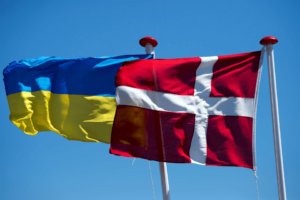
The Danish government proposes to increase aid for Ukraine’s civil needs from DKK 1.2 billion to DKK 1.5 billion next year, the Ministry of Foreign Affairs reports.
“Denmark will increase the scope of assistance for the development of Ukraine, which will again become the largest recipient country of Danish aid. In the Finance Law for 2024, the government proposes to increase from DKK 1.2 billion to DKK 1.5 billion (about $43.5 million) allocated for the civil needs of Ukraine and the countries of the Eastern Neighborhood within the Ukraine Fund of Ukraine,” the Danish Foreign Ministry said in a statement.
Minister for International Development and Global Climate Policy Dan Jørgensen noted that “assistance to Ukraine and the Ukrainian people is a top priority for the government.”
“Therefore, this year we again allocate a record high amount to civilian needs in order to continue to provide important support and help overcome the difficult consequences of the war. Ukraine’s recovery will be long, and the needs are huge,” the minister stressed.
The Ministry of Foreign Affairs indicates that the assistance will be aimed at providing emergency assistance to the victims of the war, as well as restoring the most important infrastructure of Ukraine.
“At the request of Ukraine itself, the government has taken on special responsibility for the city of Mykolaiv and its restoration. In Mykolaiv, Denmark is helping provide better access to water and heat, as well as restoring and repairing residential areas, schools and medical facilities,” the Danish ministry notes.
In addition, Denmark will assist countries such as Georgia and Moldova by accelerating the reforms and large-scale democratization processes they face as the consequences of the Russian invasion extend to neighboring countries with Ukraine, “which are suffering from Russian influence, the reception of Ukrainian refugees and power supply problems.”
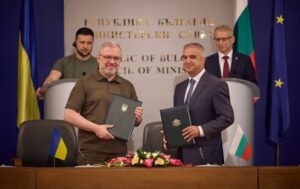
A memorandum of understanding between the Ukrainian and Bulgarian energy ministries on cooperation in the energy sector was signed in the presence of Zelensky and Bulgarian Prime Minister Nikolo Denkov during an official visit of Ukrainian President Volodymyr Zelensky to Bulgaria.
According to the press service of the Ukrainian head of state, the document was signed by Ukrainian Energy Minister Herman Galushchenko and Bulgarian Energy Minister Rumen Radev.
“The memorandum is aimed at creating framework conditions for deepening cooperation in the energy sector of Ukraine and Bulgaria based on the principle of mutual benefit and taking into account common interests and goals of both countries,” the statement said.
Ukraine and Bulgaria undertook to provide affordable energy, as well as to support industrial and regional development, security and prosperity of their peoples, expand cooperation and a shared commitment to protect the environment and mitigate climate change and reduce carbon emissions.
It was noted that taking into account Ukraine’s status as a candidate for EU membership and Bulgaria’s obligations as a EU member state, the sides agreed to intensify further mutually beneficial cooperation in the field of nuclear energy, green energy, hydrogen, as well as energy storage systems and smart grids.
Sharing knowledge and experience to protect energy infrastructure from physical, electromagnetic, and cyber threats is a priority in the cooperation.
As reported, Bulgarian parliamentarians by a majority vote delegated the country’s Energy Minister to negotiate with his Ukrainian counterpart on the possibility of selling equipment intended for Belene NPP to Kiev, Bulgarian National Radio (BNR) reported Thursday.
The decision was supported by 135 deputies, while 57 opposed.
Earlier, BNR reported that Ukraine had expressed interest in purchasing the reactors intended for Belene NPP.
Bulgaria abandoned the project in 2012.
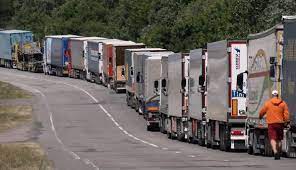
The All-Ukrainian Agricultural Rada (AAR) and the Association of Milk Producers (AMP) will hold a mirror strike in response to the protest started by Polish farmers against the transit of Ukrainian agricultural products through Poland and will not allow Polish trucks into Ukraine.
“In protest against the actions of Polish agricultural producers who began a strike and blocked the border crossing point (BCP) “Dorohusk – Yagodin” for cargo with Ukrainian grain, domestic agricultural producers decided to act in the mirror,” – noted in a press release of the WAR.
It is emphasized that Ukrainian agrarians have taken a strong stance to protect their interests and the domestic agricultural sector. During the strike, they will block the movement of Polish trucks through four international checkpoints, viz: The checkpoint “Dorogusk – Jagodin” on the Ukrainian side, in the municipality of Krakivets near the checkpoint “Krakivets-Korcheva”, in the village of Rata near the checkpoint “Rawa-Russkaya” and in the village of Shehini near the checkpoint “Shehini-Medika”.
The action will begin on June 10 at 10:00 and will last until 00:00, June 14.
As reported, for several days, Polish farmers have been blocking the PP “Dorohusk – Jagodyn” in protest against the influx of Ukrainian grain to the Polish market.
Only vehicles carrying humanitarian aid are allowed to pass. As part of the protest, two trucks with humanitarian aid will pass from Poland to Ukraine per hour, and none from Ukraine to Poland.
According to data for Friday morning, about 320 heavy trucks stood in a nine-hour queue to leave Poland for Ukraine at the Dorohusk border crossing point. According to the Ukrainian side, there were 3,185 trucks registered in the electronic queue to enter Poland.
The Polish protest is expected to last until midnight on Monday.
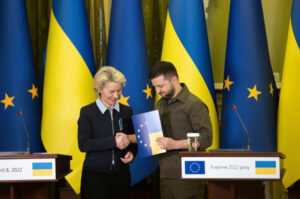
The volume of financing actually allocated to Ukraine by international partners in January-May 2023 to cover the deficit was $17.97 billion, compared to $32.14 billion in the previous year, the Ministry of Finance has reported.
According to the data published on its website, the grants accounted for $6.16 billion or 31.1%, including $6 billion provided by the United States, $52 million by Germany, $50 million by Spain and $21 million each by Finland and Ireland.
The biggest creditor of Ukraine this year is the EU – $8.12 billion, which has already exceeded the figure of the whole of last year, which amounted to $7.96 billion.
The IMF is the third largest lender this year with $2.706 billion compared with $2.693 billion last year.
They are followed by Canada with $1.76 billion, as well as the World Bank and the UK with $0.55 billion and $0.50 billion, respectively.
The Ministry of Finance specifies that the internal financing of the state budget through placement of government bonds amounted to $6.74 billion during this period.
As earlier reported, in 2023, Ukraine expects to receive about $42-42.5 bln in external financing of the state budget.
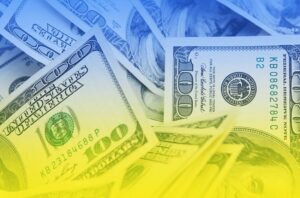
On May 12, the State Aviation Enterprise (SAE) “Ukraine” again announced a tender for services of compulsory civil aviation insurance: compulsory liability insurance of commercial aviation civil aircraft operator for damage caused to third parties and air carrier liability for damage caused to passengers and baggage; compulsory civil aircraft insurance; compulsory insurance of aircrew members and other aviation personal
According to a message in the electronic procurement system Prozorro, the expected value of the purchase of insurance services is UAH 23.392 million.
The tender bid is secured by an electronic bank guarantee of UAH 233.9 thousand.
The deadline for bids is May 20.
As reported, a similar tender with the same budget was announced on April 28, after a tender with a budget of UAH 17.1 million, announced on March 9, failed due to lack of proposals.
The State Aviation Enterprise “Ukraine” was established to organize, provide and perform air transportation, special flights of the highest official delegations of Ukraine and other states in the country and abroad in compliance with the requirements and rules, which are stipulated in the relevant regulatory documents.
BUDGET, INSURANCE, State Aviation Enterprise, TENDER, UKRAINE